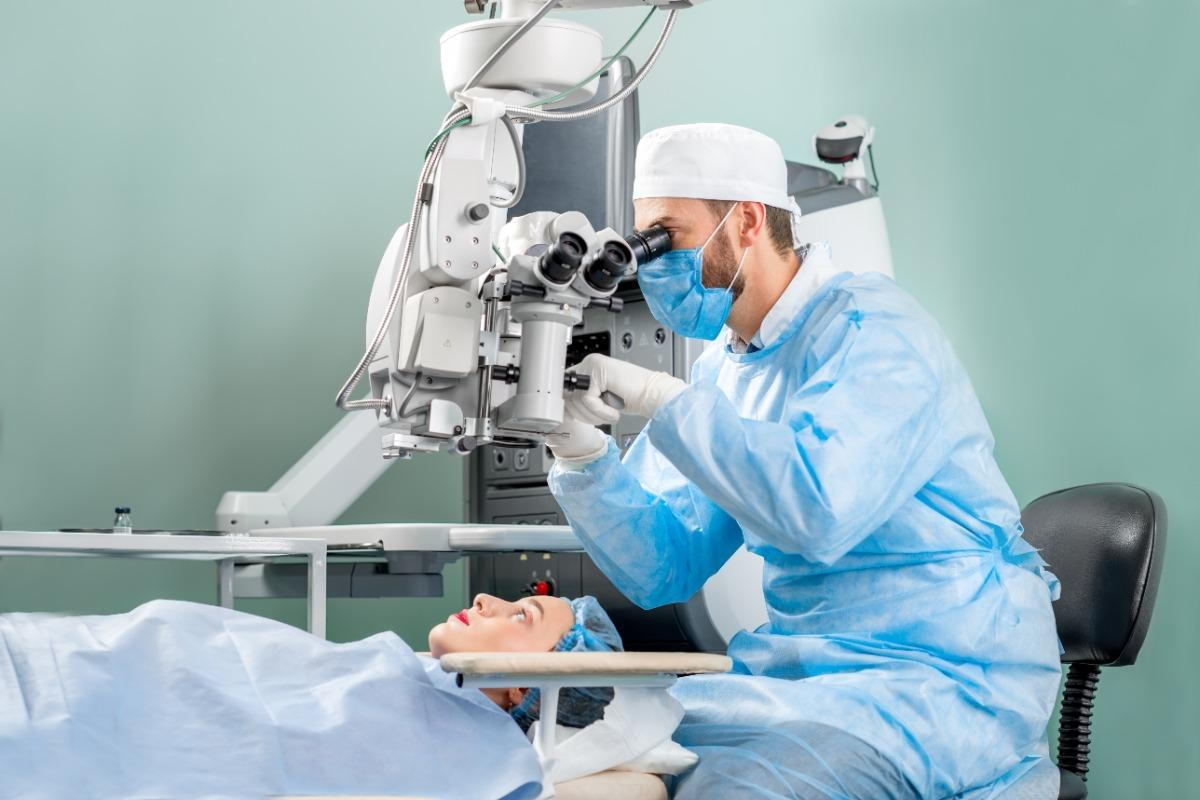
- posted: Nov. 01, 2023
Cataract Surgery
Cataracts can cause blurry vision and difficulty seeing at night, which can significantly affect your quality of life.
What Is Cataract Surgery?
Cataract surgery replaces your natural lens with an artificial one. Once you get your intraocular lenses (IOLs), your nearsightedness and farsightedness may also improve dramatically. Cataract surgery is nearly 100% successful and has a fast recovery time. The procedure often takes about 15 minutes and you may be able to eliminate contact lenses or eyeglasses after the surgery.
How Does Cataract Surgery Improve Vision?
Cataracts become progressively worse and lead to vision loss. However, surgery can help you achieve a sharper vision. Some benefits of cataract surgery include:
• Eliminates clouding and blurry vison caused by cataracts
• Corrects refractive errors like nearsightedness, farsightedness and astigmatism
• Enhances color perception, which can provide a crisp and bright vision
• Improves your quality of life and help prevent falls.
Additional options Cataract Surgery include are Laser-Assisted Cataract Surgery and premium lenses which can lead to better outcomes from cataract surgery.
Laser-Assisted Cataract Surgery uses the femtosecond laser in a few steps during the procedure to remove the cataract. However, the process of ultrasonic phacoemulsification is used to remove the cataract lens.
Premium Lenses (IOLs) are another option for cataract surgery. Monofocal lenses only provide one prescription power and therefore can only correct one vision problem. Multifocal, accommodating Extended-Depth-of-Focus (EDOF) lenses can help improve both your vision for both near and distance vision as well as intermediate vision. Toric premium lenses can help treat astigmatism (blurry vision) and are available for multifocal, monofocal, accommodating IOLs . While all premium lenses can improve a variety of vision problems, these IOLs are not covered by insurance and will cost additional fees.
To learn more about cataract surgery, please visit our Cataract Surgery discussion page as well as our Laser-Assisted Cataract Surgery discussion.
In addition, our Lens Implant (IOL) discussion which provides additional information about the various types of premium lenses that are available for cataract surgery as well as new technologies that may be issued in cataract surgery.
How to Find an Expert Cataract Surgeon
Because there are many options for premium lenses which offer benefits beyond the monofocal lenses which are usually covered by Medicare and private insurance for cataract surgery, we believe it is important to find a highly qualified cataract surgeon like those featured in our Cataract Surgeons Directory, please visit:
Trusted LASIK Surgeons™ Directory
If you don’t have cataracts but have other vision problems that may be corrected by another refractive surgery procedure like LASIK, PRK, SMILE Eye Surgery, EVO ICLs, or Kamra Inlay, please use our LASIK surgeon directory by visiting:
Trusted LASIK Surgeons™ Directory
The screening process and standards used by Trusted Cataract Surgeons™ and Trusted LASIK Surgeons™ can be found at:
How Are Cataract Surgeons and LASIK Qualified at Trusted LASIK Surgeons™?
Trusted LASIK Surgeons™ and Trusted Cataract Surgeons™
Trusted LASIK Surgeons™ and Trusted Cataract Surgeons is an online business that provides LASIK and Cataract Surgeon directories and consumer resources concerning eyesight and vision correction as well as a Consumer Checklist for the True Cost of LASIK.
Please Contact Us or call for more information.
Copyright ©2023 Trusted LASIK Surgeons™ and Trusted Cataract Surgeons™ All Rights Reserved.
Website Powered By iMatrix Ophthalmology

